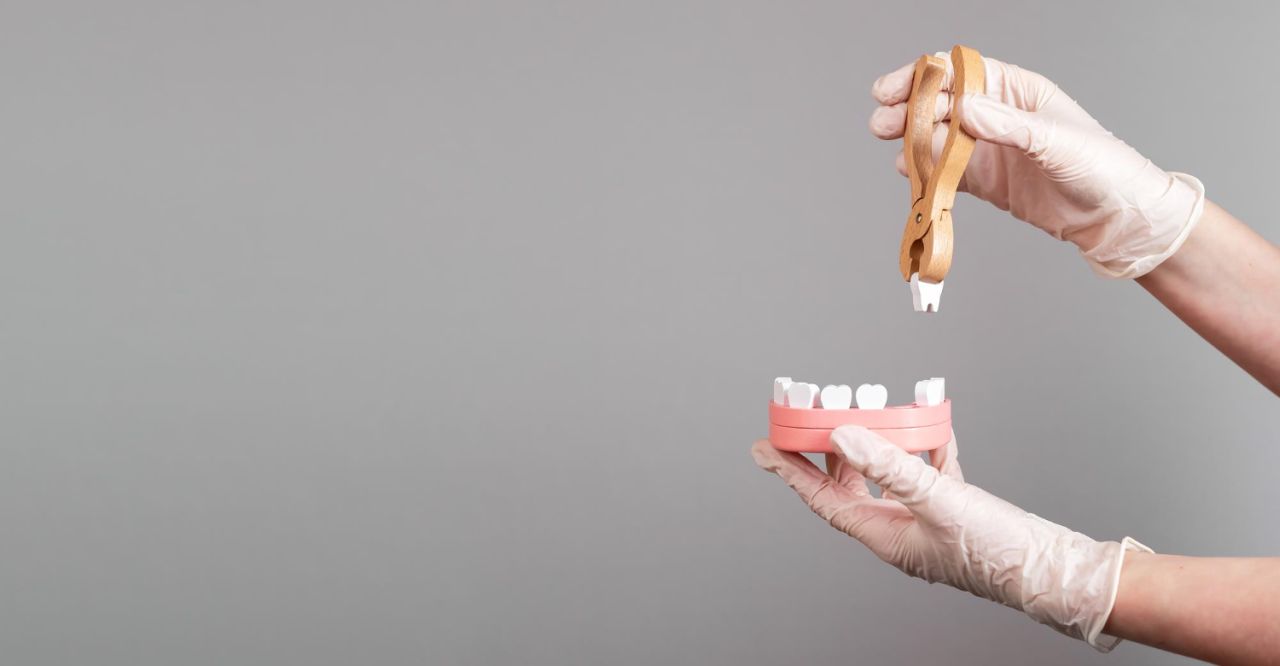What are the Functions and Purpose of Wisdom Teeth?

Wisdom teeth are often one of the most misunderstood teeth in the human mouth. Many people believe wisdom teeth are simply extra, unnecessary teeth that can cause problems down the road.
However, wisdom teeth serve an important function and purpose in the mouth.
Most people have four wisdom teeth, but they can vary in size and shape. Wisdom teeth usually come in during late adolescence or early adulthood.
Many people have their wisdom teeth removed because they can cause problems like pain, infection, and crowding of other teeth. But only some people need to have their wisdom teeth removed!
This post will take a closer look at wisdom teeth and what they do.
We’ll also discuss some of the common misconceptions about wisdom teeth so that you can make an informed decision about whether or not to have them removed. So, what are wisdom teeth? Let’s find out!
Types of Teeth
Molars and wisdom teeth are the two kinds of teeth that require regular maintenance in addition to the other teeth in your mouth. The molar teeth are flattened and situated at the mouths very rear.
They might vary in size and shape and take up the most space in the mouth, but they are always the biggest.
Molars have a circular shape and are used to crush food into a more conveniently ingested consistency effectively.
Because they are responsible for shredding and biting food, the front teeth are pointed and more compact. Molars are specifically engineered to provide the significant support required for clenching, grinding, and chewing.
Two to four roots in the jawbone are connected to each molar.
There are around 12 molars in the mouths of most adults, with six located in each of the upper and lower jaws. In addition, approximately three molars are located on each side of the upper and lower jaw.
Different Types of Molars
After the youngster has shed all of their primary teeth, the permanent molars will erupt.
- First, these are known as the 6-year molars because they typically erupt between the ages of 6 and 7.
- Another type of molar that emerges at the age of 12 is known as the 12-year molar.
- Third, these are known as the wisdom teeth, typically emerging between the ages of 17 and 25.
What Are Wisdom Teeth?
When a person’s mouth is fully developed, a last set of permanent teeth known as the wisdom teeth will emerge. Your wisdom teeth, also known as your “third molars,” are located in the very rear of your mouth, where they’re also known by their other name.
There are situations where the wisdom teeth erupt normally and without causing any problems. But unfortunately, wisdom teeth frequently become wedged (impacted) in the gums or jawbone, either partially or completely.
When anything like this occurs, it can lead to infections, cavities, gum disease, and other problems with dental health. It is for this reason that the majority of medical professionals advise getting your wisdom teeth extracted.
Why Are They Often Referred to as the “Wisdom” Teeth?

The third molars are the last pair of teeth to erupt in the mouth and are known as the “wisdom teeth.” The onset of these symptoms normally occurs between the ages of 17 and 21.
Because they came in at a mature time, people began to refer to them as “wisdom” teeth. The nickname’s origin can be traced back to the proverb or concept that “with age comes wisdom.
Reasons for Wisdom Teeth
Raw flesh, nuts, roots, berries, and leaves were the only foods that allowed our early ancestors to grow and flourish. Powerful teeth were needed to chew these stiff, gritty, and rough foods.
In order for our predecessors to be able to eat the raw foods that were fundamental to human life, it was essential for them to have all three sets of molars, especially their wisdom teeth.
The bigger jaws that were characteristic of our predecessors made it easier to make room for the wisdom teeth. Because of this, they were able to emerge normally into the mouth.
Anthropologists can estimate the age of skeletons using a variety of methods, one of which is the presence or absence of wisdom teeth.
Wisdom Tooth Eruption
The teeth located at the mouth’s very back are referred to as the wisdom teeth or third molars. Whenever a tooth is ready to come through, it must first push through the jaw bone and then the gums before arriving in the mouth.
Under typical conditions, there is sufficient room in the jaw to make room for the tooth that is in the process of erupting.
The term “wisdom teeth” originates from the fact that wisdom teeth come in as soon as a person reaches adulthood, hence the name.
These are the teeth that emerge at the very end of the dental arch. This typically happens to people between the ages of 15 and 25. At this point in time, the growth of the jaw bone is virtually finished, and it is possible that it will not have enough space to support the newly emerging wisdom teeth in most cases.
What Are The Initial Symptoms Of Wisdom Teeth Emergence?
Several indicators and signs can be used to determine whether or not you have wisdom teeth growing in. You might have observed:
- Gums that are swollen or red, especially towards the back of your teeth where your molars are.
- Tenderness or soreness in the jaw.
- Facial discomfort because of the wisdom teeth’ impact on the surrounding nerves.
- You can see some white flecks at the back of your last teeth. These bumps are most likely the crowns of your newly erupted teeth that have broken through the gums.
Do Adults Always Have Their Wisdom Teeth?
To answer your question, no, not everybody has wisdom teeth. According to the findings of one research project, around 53 per cent of the general population possesses at least one wisdom tooth. And there are those people who never even get their wisdom teeth.
Why Do They Start To Cause Issues?
The fundamental makeup of modern people shifted as our species developed. As time passed, the jawbone shrank, and eventually, none of the 32 teeth could be accommodated in their normal positions.
Some become “impacted,” which means they are prevented from fully erupting because insufficient space and existing teeth obstruct them.
On the other hand, only some have wisdom teeth. At the very least, they may never erupt below the surface. Based on the findings of the research, this can be attributed to a variety of factors. Among these are the tooth’s angle, the way its roots have developed, the tooth’s size, and the amount of space left in the jawbone.
Despite the fact that wisdom teeth are not affecting the space of the other teeth, one may choose to have them removed in order to avoid potential complications in the future.
Because of their location so far in the mouth, these teeth might be challenging to adequately care for in order to ensure that they remain healthy. Therefore, in the interest of the patient’s overall health, a dentist may recommend that their patient have their wisdom teeth extracted.
What Health Issues Can Affect Wisdom Teeth?
There is a risk of difficulties developing in certain individuals with wisdom teeth that have not emerged correctly or been impacted. Among these potential issues are the following:
- Wisdom teeth pain.
- Infection.
- Cavities.
- Gum disease.
- Damage to neighbouring teeth.
- Cysts.
- Tumours.
Why Do We Get These Teeth Anyway?
The wisdom teeth, also known as the third type of molars, are remnants from a time when humans were larger and had additional teeth in their mouths.
These teeth assisted the animal in the process of eating tough foods such as nuts, tubers, meats, and leaves.
However, it was a challenge to consume food of this nature, particularly given the lack of access to appropriate oral care products such as toothpaste, dental floss, and toothbrushes. Because of this, tooth decay is a problem that has the potential to become widespread.
Additionally, you need to schedule an appointment with your dentist at the appropriate time so that they can diagnose any problems with your teeth and examine them for any signs.
Do Wisdom Teeth Need To Be Removed?
Not necessarily. You won’t need to have your wisdom teeth out if they erupt normally and don’t give you any trouble along the way.
But if you begin to experience pain or swelling from your wisdom teeth, you should make an appointment with your dentist as soon as possible. They are able to give you an in-depth analysis of your choices.
The Extraction of the Third Molar Is Usually Required Because…
The condition called impacted wisdom teeth occurs when there is not enough room in the mouth for the additional teeth to develop properly. Because of this, they cannot surface in a regular, healthy position, which prevents them from properly cleansing their teeth and chewing their food.
You won’t have any signs if your wisdom teeth are impacted.
On the other hand, if they become infected, this can be a source of discomfort and may even cause harm to adjacent teeth.
You may have one or more of the following symptoms: pain in the region of the impacted teeth, painful and bleeding gums, and gums that are red and swollen.
You may find it difficult to chew food, talk, or open your mouth, and the damaged side of your jaw may swell up.
This may also make it challenging for you to chew. You may also notice that your breath smells horrible, and your mouth has an awful flavour.
It Might Become Complicated
An impacted tooth can frequently result in issues such as periodontal disease, tooth decay, abscess formation, or cyst formation.
In addition, it can pull other teeth out of position and produce crowding in the mouth. In spite of this, the jaw bone itself may become damaged as a result of it.
Damage to other teeth, swelling or abscesses, decay to neighbouring teeth, and gum disease are all problems that can arise from wisdom teeth that have become impacted.
There is a connection between these issues and the fact that your wisdom teeth have not emerged correctly into the mouth.
This can lead to the formation of food traps that are difficult to clean and can lead to infections.
There are a variety of potential dangers associated with surgery, and these risks can vary according to the extent of the wisdom tooth impaction.
Among these are discomfort and inflammation of the gums and the area around the gap left by the tooth that was pulled.
Continued bleeding for up to a full day. Having trouble opening both your mouth and your jaw.
Deterioration of the patient’s natural teeth The condition known as the dry socket is an inflammation of the socket. Lip, tongue, and mouth numbness that occurs after the effects of the anaesthesia wear off and is caused by inflammation or injury to the nerves that run through the jaw.
Even If They’re Impacted, Do You Need Them Removed?
Even if your wisdom teeth are impacted, this does not always mean you will be required to have them out.
In order to arrive at a conclusion, your dentist will need to review the patient’s medical history and consider the possibility of further issues. The choice may be made to examine impacted wisdom teeth with routine checkups on occasion.
Surgical Extraction of Teeth
There is no way to avoid having a wisdom tooth become impacted or the symptoms that accompany it. However, you can prevent the tooth from developing difficulties by allowing it to follow its natural path, resulting in it erupting normally or being impacted.
The first line of therapy for wisdom teeth that cause problems is to have the tooth extracted. Under local anaesthetic, a rather small surgical procedure will be carried out. Before beginning the procedure, your oral surgeon will conduct a series of diagnostics, including x-rays and blood work.
The operation will take roughly thirty to forty-five minutes of your time.
Because it is performed on an outpatient basis, patients are free to return home immediately following their treatment. After a week has passed, you will receive a request to return for a follow-up appointment. You should put an ice pack on your cheek if you’re experiencing any pain or swelling in that area.
Education will be prescribed to manage the pain and lower the likelihood of infection. In addition, the oral surgeon will give you instructions on how to care for yourself following the procedure.
If you are suffering any of the problems mentioned above, it is in your best interest to get checked out by an oral surgeon, who will lead you through the surgical operation and answer any questions you may have.
Healing After Having Your Wisdom Teeth Removed
During the first twenty-four hours following the operation:
- Avoid aggressively washing your mouth or drinking through a straw would be best.
- Don’t use mouthwash that contains alcohol, and don’t drink alcoholic beverages.
- You should prevent brushing your teeth in the area where the extraction took place. Instead, use a soft manual toothbrush instead of an electric one because of its more caring nature.
You may continue feeling discomfort, bleeding, and swelling in your cheeks and mouth for up to several days after the procedure. During this time, you may not be capable of opening your mouth completely.
The healing process at the tooth root can take up to six weeks, however, most patients are able to return to their typical activities the following day.
In light of this, it is important to refrain from physically taxing activities for the first week after the operation in order to prevent the blood clot from becoming disrupted.
During the time that you are trying to get better, you should not smoke.
Healing
You will receive additional gauze from your dental professional or surgeon to use on the tooth root at home.
If you still have bleeding after removing this gauze, fold another piece of sterile gauze into a pad and place it over the wound. After soaking the pad in warm water, carefully place it in the area of the dental extraction and hold it there with light pressure. It is best to refrain from chewing on the gauze. Maintain its position for about half an hour and switch it out if it becomes blood-saturated during that time.
Your orthodontist may also advise soaking a tea bag in water and then biting it gently for the next half an hour to stop the bleeding.
This is because tannins are found in tea, and they are molecules that have the ability to compress blood vessels and aid stop bleeding.
In a trial that was conducted in 2014, the researchers gave patients the option of using conventional gauze or gauze that had been wet with green tea extract on their gums after having teeth extracted.
They came to the conclusion that the gauze infused with green tea extract was superior to conventional gauze when it came to preventing further bleeding.
If you experience any symptoms of dry socket, including excessive bleeding or substantial discomfort, you should contact your surgeon as soon as possible.
Pain Relief
Pain relievers available without a prescription, such as Tylenol (acetaminophen) and Advil (ibuprofen), typically provide adequate relief for the discomfort experienced after having wisdom teeth removed.
Also, placing a bag of ice or a cool cloth on your face in order to alleviate the discomfort and swelling associated with the injury.

Your doctor may decide to recommend pain medication for you, which may involve opioids such as hydrocodone and oxycodone in some circumstances.
These drugs do not pose a significant safety risk when taken exactly as prescribed and for the shortest possible duration. However, adherence to the directions provided by your doctor is essential, as failure to do so may result in an overdose, addiction, or even death.
Eating and Drinking
Following dental surgery, your orthodontist will advise you on what foods to eat and when it is safe to do so.
The soft tissues in your mouth may remain uncomfortable for a few weeks at a minimum. In most cases, you can begin eating soft or liquid-based things, and when you feel comfortable, you can eventually begin introducing more solid items.
You are only allowed to consume liquid or soft meals for the first twenty-four hours after surgery, such as yoghurt and applesauce.
After that, you are able to move on to items that are only slightly harder, such as eggs, soft bread, and oatmeal.
It would be best if you avoid meals that are spicy, acidic, chewy, or tiny and hard (such as nuts, seeds, and granola) until the area has recovered completely since these types of foods can irritate the wound.
After each meal, your dentist may recommend that you rinse your mouth with warm salt water (consisting of half a teaspoon of salt dissolved in eight ounces of warm water), taking care not to disturb any blood clots that may be present.
When Should You Have Them Taken Out?
Between the ages of 18 and 25, the wisdom teeth erupt. Therefore, you may need to have your wisdom teeth extracted anywhere between the ages of 17 and 18, based on the kind and degree of the crowding in your mouth.
At any age, it is conceivable to have your wisdom teeth extracted; however, young adults in their teens and early twenties have a lower risk of experiencing severe symptoms during surgical procedures.
This is due to the fact that their wisdom tooth roots have not yet sufficiently formed, and their jaw bones are less dense at this age.
Why Wisdom Teeth Aren’t Necessary Today
Bring things up to date and look closely at the food we are now consuming. Examine, more crucially, the methods by which we cook the food that we consume.
There is a widespread belief among dental professionals that consuming foods that are on the softer side, particularly when one is young, may contribute to the development of impacted wisdom teeth.
We prepare practically all we consume by dicing, chopping, boiling, steaming, and baking. However, because of all the work put into preparing the food, eating has become a rather simple task.
The manner in which food is cooked and eaten may be responsible for the gradual narrowing and diminution of the width of our jawline over the course of human history.
Tougher meals accelerate jaw growth in youth, increasing the likelihood that a child will have space for their third tooth. In addition, cleaning wisdom teeth is often necessary because they are no longer required, and our jaws lack the space to accommodate them.
Time to Visit the Dentist
Visit your doctor at least once every six months so that they can track the progress of the eruption of your wisdom teeth. Also, if you begin to have discomfort surrounding your wisdom teeth, you should schedule an appointment with your dentist so that they may examine you and determine what might be causing the discomfort.
Summary
Everyone does not have their full set of wisdom teeth, and some people do not even have any wisdom teeth. Many people opt to have their wisdom teeth extracted to prevent complications with their other teeth in the future. If they are not extracted, your orthodontist ought to examine them in order to head off potential complications in the near future.
